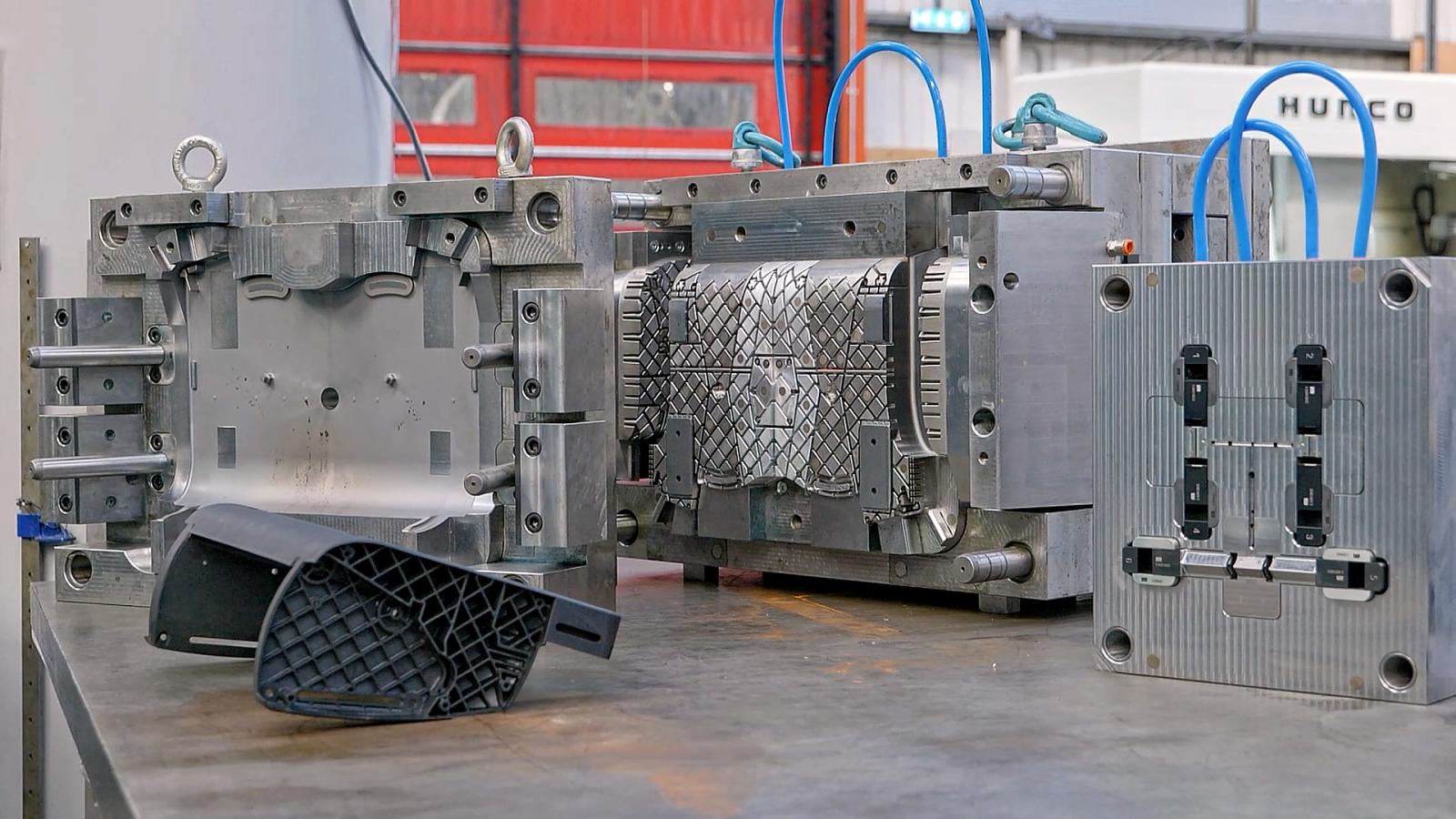
Mould tool manufacturer Crossen Engineering has invested in a new bridge-type machining centre to produce parts with enhanced accuracy and surface finish.
The Hurco BX40i, has a rigid design and an HSK63A 18,000 rpm motor spindle. Direct drives and linear scales in all axes provide highly dynamic motions and accurate positional feedback.
Based in Newtownards, Northern Ireland, Crossen Engineering is renowned for producing high precision mould tools mainly for the medical industry. In recent years, its business has expanded to include the production of tooling for floor tiles, car mats and many other items that need to be moulded.
Prismatic machining on-site is provided by numerous vertical machining centres (VMCs) from Hurco Europe, High Wycombe, mainly its own machines but also an RXP500 VMC supplied under a sole agency agreement with the German manufacturer, Roeders. Crossen Engineering’s capabilities extend beyond metal cutting, however, to encompass design and prototyping, pressworking and injection moulding.
As a long-term user of Hurco machine tools, Crossen is aware of the capabilities of the supplier's range and sometimes needs to produce parts to slightly higher accuracy and surface finish. That was behind its recent investment in a Hurco BX40i, which is of rigid, bridge-type design and has an HSK63A 18,000 rpm motor spindle. Direct drives and linear scales in all axes provide highly dynamic motions and accurate positional feedback.
Crossen toolmaker Colin Morrow commented, "A super-fine finish is required for shut-off faces in moulds and the BX40i is able to produce them with little or no subsequent hand finishing.
"We are also looking for accuracy throughout the whole job as well as high feeds and speeds. With it being a double-column VMC, it is very rigid and it gives us what we are looking for in terms of productivity and precision."
The Roeders RXP500 3-axis, high-speed machining centre has a 42,000 rpm spindle, linear motors in the X, Y and Z axes and travels of 550 x 450 x 240 mm. The machine is able to achieve levels of accuracy and surface finish superior to almost any other machine on the market. Whilst often used to make electrodes, the VMC also mills detailed cavities directly into hard metal, reducing the number of operations needed to produce a mould and dramatically shortening turnaround times.
James Dunlop is the toolmaker responsible for running the Roeders at Crossen. He stated, "It is accurate and user friendly and a joy to use, as it does exactly what you tell it to do. A Renishaw probe checks job set-ups and multiple datums are often used, helping to eliminate errors.”
As is the case for many businesses in Northern Ireland, the key to success has been diversification. Although the medical, aerospace and automotive sectors are obvious outlets for its production, opportunities are arising in evolving industries such as renewable energy and electric vehicles. The ability to adapt to change should ensure that Crossen Engineering continues to grow.